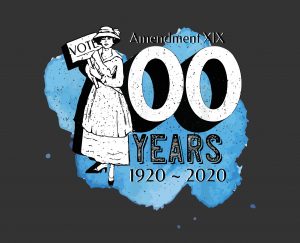100th Anniversary of the 19th Amendment

Over one hundred years ago, on August 26, 1920, the ratification of the 19th Amendment to the US Constitution enfranchised millions of women across the United States. This meant to women their right to vote would “not be denied” on account of sex. The ratification was the focus of the women’s rights movement and the journey was an arduous and tiresome road to victory that required decades of strife.
Though it permits many American women to cast their ballots at the polls, still millions of women and others were excluded from the vote for decades after its ratification as many barriers for suffrage remained. “A victory for some was not a victory for all, and fights continue today,” says Marcia Chatelain, professor of history and African-American Studies at Georgetown University.
A Movement
In the mid-19th century, this historical movement, much like a professional symphony chorus, was vast with diverse voices, included colored women, Christian women, farmer’s organizations, the women’s trade union league, and male supporters. But not all men because patriarchal culture led way to most men wanting women to be in the kitchen, barefoot and pregnant, and staying quiet.
The movement began because these fierce freedom fighters recognized the larger social fabric needed vicissitude and the time was nigh. To be heard, woman suffrage supporters became louder through lobbying efforts, marching, lecturing, and writing. They organized parades, silent vigils, and hunger strikes, demonstrating the courage and valor of the suffrage movement as its roots came to represent not just voter rights, but equal rights for all citizens.
Not a Done Deal
In hindsight, this was actually the beginning of what would lead to the Equal Rights Act, which is still in process today. This past January (2020), Virginia became the 38th state to ratify the Equal Rights Amendment, following Nevada in 2017 and Illinois in 2018. The Equal Rights Act was first introduced to Congress in 1923, approved in 1972, and ratified by 35 out of the constitutionally required 38 states by 1974. As with any worthy movement, defenders were arrested and jailed, abused, tortured, and force-fed. Refusing to stop, they held the vision until its fruition of the amendment. However, even after the amendment finally passed, the struggle to include African-American and other non-white American women remained for decades.
“One of the lessons that we learn when we compare 1920 and 2020, Martha S. Jones, Society of Black Alumni Presidential Professor and Professor of History at The Johns Hopkins University, is that voting rights are never a given. It’s never a guarantee. It’s not a done deal in the United States.”
During this 100-year anniversary week, we pay homage to our ancestors and elders for their bravery and achievement; they have paved the way for new liberties and have changed old conventions. And while this democracy is far from perfect, if you want this country to move in the direction that matters to you the most, your vote matters more than ever.
- SHARE THIS POST







